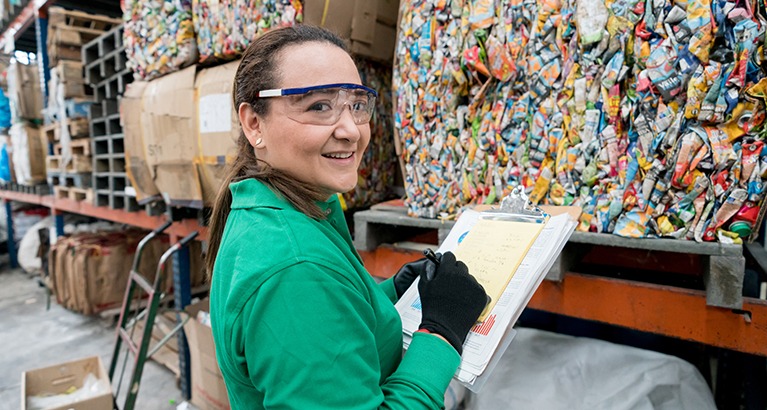
Policymakers in Europe and around the world have adopted laws designed to combat illegal or unwanted waste disposal methods such as dumping, but to limited effect as violations are rampant. Investigations show that it may be more profitable to violate than follow rules on products such as post-use electronic waste (e-waste).
A new study co-authored by Dominique Lauga, Professor of Marketing at Cambridge Judge Business School, addresses this issue by calling for consideration of penalising producers for downstream dumping, reducing the asymmetry in export burden between different qualities of waste, and by not focusing primarily on penalising dumping by treatment operators as this can worsen environmental harm.
75% of e-waste is exported to developing countries, often illegally
“Globally, it is estimated that 75% of e-waste is exported, predominantly from the EU and US to developing countries, often illegally through mis-classification, bribery, or document forgery,” says the study published in the journal Management Science. “Even when waste is not exported, it is not guaranteed to find proper treatment and may be dumped locally.”
While many waste products can be transformed into goods with positive value through treatment, if the treatment cost is too high relative to the economic value of the output then export or dumping may prove economically more attractive. The paper therefore “seeks to understand how the regulatory climate interacts with waste chain economics – and to identify what would best mitigate environmental harm through a waste chain outcome that resulted in more treatment and less exporting.”
What Europol and the US Environmental Protection Agency (EPA) need to know
- When information asymmetry is prevalent in the waste chain, what type of waste is being dumped or exported instead of going through proper treatment (such as recycling or recovery)?
- Where should the legislative and enforcement focus be concentrated (on which agent and which waste type) so that treatment emerges as the waste chain outcome?
The paper explores the effect of changing export restrictions and national anti-dumping enforcement on the environmental harm that results.
Whereas much previous research has focused on regulatory differences between countries, the new study instead focuses on the effect of regulations on firm-level interactions, and in particular non-compliance when agents operate under incomplete information. “We find that regulatory differences between waste categories must be limited and that the emphasis on regulating low-quality waste can deteriorate waste outcomes.”
The authors say that the study was inspired by discussions with Europol officials, who faced the challenge of determining the appropriate enforcement action to prioritise given the imperfect information they had about this issue.
Three conclusions focus on reducing environmental harm
1. The asymmetry in export burden between waste categories should be reduced in order to address differences in export costs between low- and high-quality waste.
“In other words, regulations targeted at one market failure (the export of low-quality waste) can spill over to market segments that were functioning well (the local treatment of high-quality waste), increasing environmental harm and reducing waste chain profits.”
2. Penalising producers for downstream dumping could be effective.
This is because it penalises non-compliant operators through a reduction in willingness to pay for services.
3. Domestic anti-dumping enforcement initiatives should be carefully crafted in conjunction with export rules.
“When the cost of exporting high-quality waste is low, increasing the dumping cost on the treatment operator too much can encourage export and increase environmental harm.”
The study – entitled “Treat, Dump, or Export? How Domestic and International Waste Management Policies Shape Waste Chain Outcomes” – is co-authored by Sytske C Wijnsma of Haas School of Business at the University of California, who is a PhD graduate of Cambridge Judge Business School; Dominique Lauga of Cambridge Judge; and L Beril Toktay Scheller College of Business, Georgia Institute of Technology.
Featured research
Wijnsma, S.C., Lauga, D.L. and Toktay, L.B. (2024) “Treat, dump, or export? How domestic and international waste management policies shape waste chain outcomes.” Management Science





